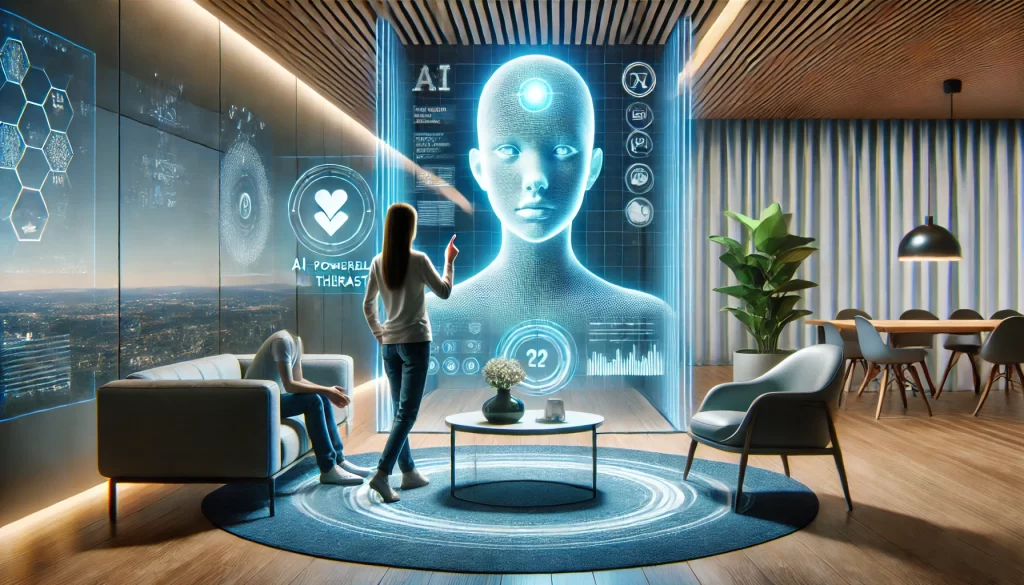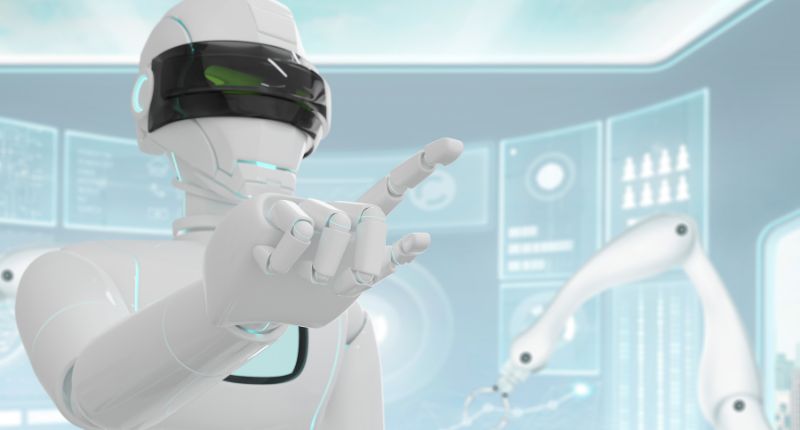AI and Mental Health: Can Technology Help?
Artificial Intelligence (AI) is revolutionizing various industries, and mental health care is no exception. With the rise of AI-powered chatbots, mental health apps, and predictive analytics, technology is playing an increasingly important role in emotional well-being. But can AI truly help with mental health? In this article, we’ll explore how AI is impacting mental health care, its benefits, challenges, and what the future holds.
The Role of AI in Mental Health Care
AI-powered tools are designed to assist mental health professionals and individuals by offering accessible, affordable, and scalable support. Here’s how AI is being used in mental health care:
1. AI-Powered Chatbots and Virtual Therapists
AI-driven chatbots, such as Woebot and Wysa, provide 24/7 mental health support by simulating human conversation. These tools help individuals manage stress, anxiety, and depression through cognitive behavioral therapy (CBT) techniques.
✅ Examples:
- Woebot: Uses AI to provide real-time emotional support and CBT techniques.
- Wysa: Helps users cope with stress through mindfulness exercises and AI-driven conversations.
2. Predictive Analytics for Early Intervention
AI can analyze patterns in speech, text, and behavior to detect early signs of mental health conditions such as depression and anxiety. Machine learning models assess risk factors and provide proactive interventions.
3. AI-Powered Mental Health Apps
Apps like Replika and Mindstrong use AI to track emotional well-being and provide personalized recommendations.
✅ Popular AI Mental Health Apps:
- Replika: An AI companion designed to offer emotional support.
- Mindstrong: Uses AI to monitor cognitive function and mental health.
4. Personalized Treatment Plans
AI helps clinicians develop customized treatment plans by analyzing patient history, mood patterns, and therapy progress.
Benefits of AI in Mental Health
AI is transforming mental health care in several ways:
1. Increased Accessibility
Many people lack access to mental health professionals due to cost or location. AI-driven chatbots and apps provide affordable, 24/7 support.
2. Early Detection and Prevention
AI-powered tools analyze behavioral patterns and detect early warning signs, allowing for timely intervention before conditions worsen.
3. Reduced Stigma
Many individuals feel uncomfortable seeking mental health support. AI-based therapy tools provide a private, judgment-free space to talk about emotions.
4. Cost-Effective Solutions
AI-driven mental health solutions are more affordable than traditional therapy, making support accessible to a wider audience.
5. Scalable Mental Health Support
AI can assist millions of people simultaneously, addressing the global shortage of mental health professionals.
Challenges and Ethical Concerns
Despite its benefits, AI in mental health care faces several challenges:
1. Lack of Human Empathy
While AI can provide support, it cannot replace the deep empathy and understanding of a human therapist.
2. Data Privacy Concerns
AI-driven mental health tools collect sensitive user data, raising concerns about privacy and security.
3. Accuracy and Misdiagnosis
AI models rely on data patterns, which can sometimes lead to inaccurate assessments or misdiagnosis.
4. Ethical Considerations
AI-driven mental health care raises ethical questions about patient confidentiality, decision-making, and bias in AI algorithms.
The Future of AI in Mental Health
As AI technology advances, its role in mental health care will continue to grow. Here are some key trends:
1. AI-Powered Virtual Reality Therapy
Virtual reality (VR) combined with AI can create immersive therapy experiences, helping individuals manage PTSD, anxiety, and phobias.
2. AI and Genetic Research
AI is being used to analyze genetic markers linked to mental health disorders, paving the way for personalized treatment plans.
3. Improved Human-AI Collaboration
The future of mental health care will likely involve a hybrid approach, where AI assists human therapists rather than replacing them.
4. Stricter Regulations for AI in Mental Health
Governments are working on regulations to ensure ethical AI use in mental health care, focusing on privacy, security, and accuracy.
Conclusion
AI is playing an increasingly vital role in mental health care, offering accessible, affordable, and scalable support. While AI-driven chatbots, predictive analytics, and mental health apps provide significant benefits, they cannot replace human therapists entirely. The key lies in balancing technology with human empathy to create an effective mental health care system.
The future of AI and mental health looks promising, with ongoing research and innovations improving how individuals receive support. However, ethical considerations, data privacy, and AI accuracy must be prioritized to ensure responsible AI use in mental health care.


